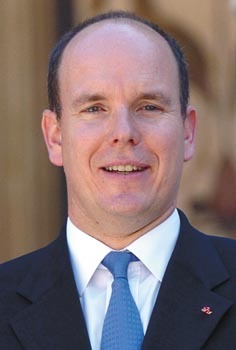Last week Prince Albert II, ruler of the tiny Mediterranean state of Monaco since his father’s death in 2005, came to London to unveil his vision for the principality. The playboy of the gossip columns was nowhere to be seen: on display at a press conference at the Ritz hotel was a softly spoken, Amherst-educated, 49-year-old man with a plan. Using words such as ‘turnover’ rather than ‘GDP’, the Prince made it quite clear that the oldest luxury brand in Europe is under new ownership, and that its new CEO plans to develop it with all the skill and science of the private equity generation. ‘Monaco,’ he says, ‘is open for business.’
Prince Albert’s plan can be seen as a model five-point case study of a post-buyout company relaunch. Step one is perhaps best described as ‘decontaminating the brand’. Acutely aware that Somerset Maugham’s description of Monaco as ‘a sunny place for shady people’ has not been forgotten, the Prince is setting about transforming the principality’s image. ‘We’ve improved on a lot of aspects of financial regulation,’ he says. ‘We are not a place that tolerates illegal financial activities or money-laundering in any form. Actually we never have been, but some of these aspects just need to be profiled in a different way.’
The power of the Monaco brand is its glamour, and last week’s press conference was perfectly executed to reinforce this core value. The Marie Antoinette suite at the Ritz was bedecked with 200 white and red roses (the colours of the Monaco flag), and the morning air was filled with hushed French voices and air-kisses, coiffed hairstyles and curly moustaches, expensive perfumes and the sound of flowing champagne. I almost genuflected at the supremely elegant consul-general, Evelyn Genta, and as even the press instinctively stood for the Prince’s arrival, one girl from a major tabloid whispered that she felt strangely nervous.







Comments
Join the debate for just £1 a month
Be part of the conversation with other Spectator readers by getting your first three months for £3.
UNLOCK ACCESS Just £1 a monthAlready a subscriber? Log in